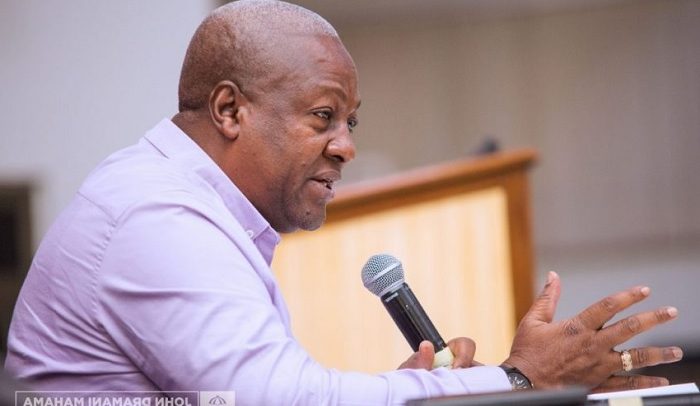Former President John Dramani Mahama is angry with President Akufo-Addo for his refusal to review the New Patriotic Party (NPP) government’s flagship education policy, the Free Senior High School (Free SHS).
In his view, the government has sacrificed quality for quantity by its continuous politicisation of the policy, with its attendant challenges, including inadequate feeding for boarding students.
He argued that the current implementation module of the Free SHS policy remains unsustainable and would only continue to lower the quality standard of education at the secondary education level.
Addressing the 8th Biennial Delegate Conference of the Ghana National Association of Private Schools (GNAPS) in Koforidua on Wednesday, former President Mahama, who is lacing his boots to lead the opposition National Democratic Congress (NDC), called on the government to organise a national stakeholders’ conference to review the implementation of the Free SHS.
According to him, this will help address some of the challenges that have bedeviled the policy implementation, and which are affecting the quality of education in the country.
“The time is now for us to rise to the occasion and collectively agree as actors in the political and developmental space on the need to depoliticise issues of urgent priority such as education delivery in our country,” he asserted.
“What is the use of education if it does not have the quality to give the learner a chance and opportunity in life,” he asked rhetorically, and continued that a future NDC government would prioritise building a strong foundation at the primary level.
“If you don’t get it right at the primary and basic level, whatever you do at the secondary level is a wasted effort. You need to build a strong foundation at the basic level,” Mr. Mahama pinned.
He said that while he admits that the Free SHS programme has come to stay, the three pillars of education must not be compromised, and mentioned them as access, affordability and quality.
He urged the government to give equal treatment to students in both private and public schools, noting that a bursary system that targets the poorest families and households, which also covers private SHS, would help to address the financial and infrastructural challenges of the policy.
By Ernest Kofi Adu


